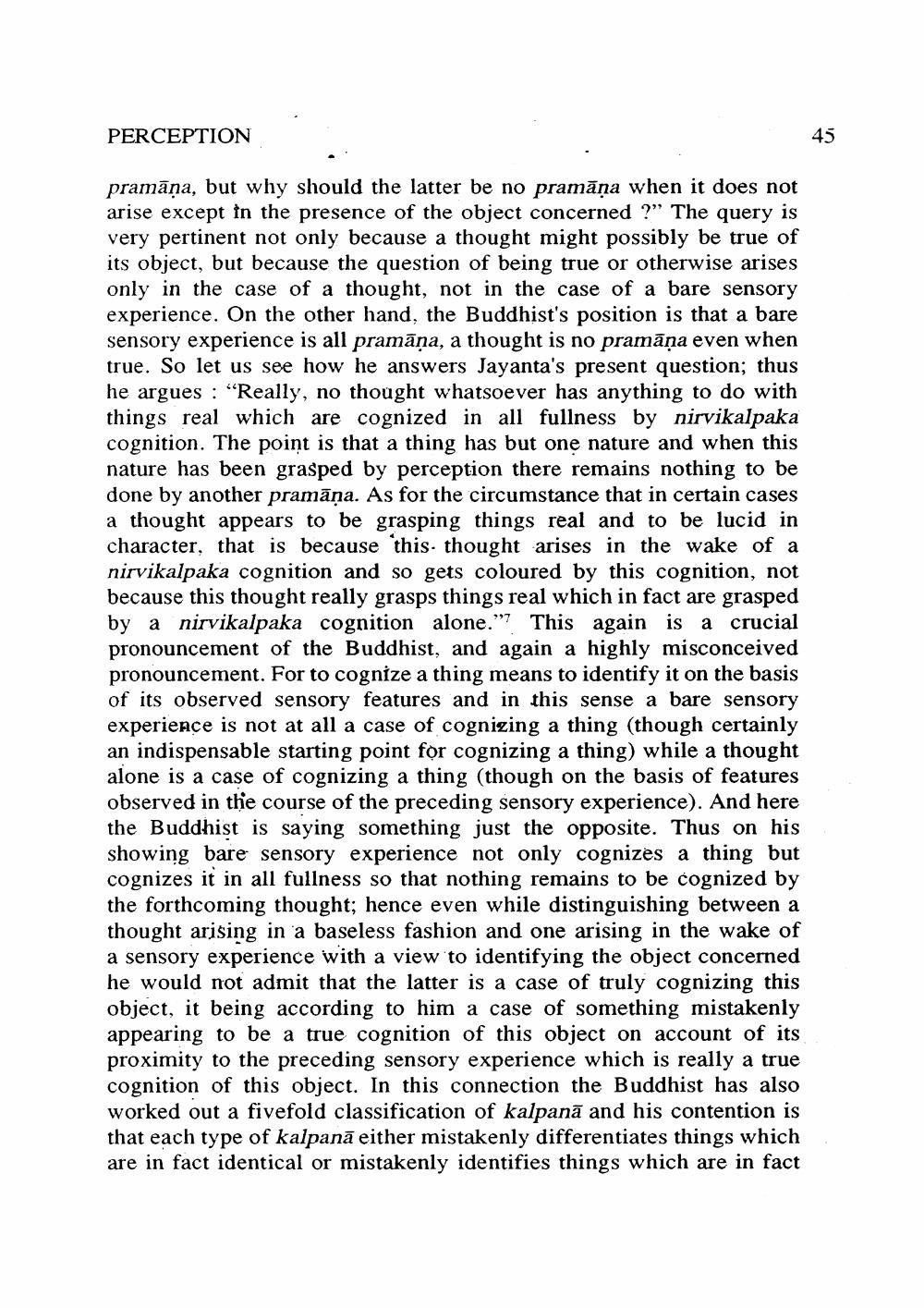________________
PERCEPTION
pramāṇa, but why should the latter be no pramāṇa when it does not arise except in the presence of the object concerned?" The query is very pertinent not only because a thought might possibly be true of its object, but because the question of being true or otherwise arises only in the case of a thought, not in the case of a bare sensory experience. On the other hand, the Buddhist's position is that a bare sensory experience is all pramāṇa, a thought is no pramāņa even when true. So let us see how he answers Jayanta's present question; thus he argues "Really, no thought whatsoever has anything to do with things real which are cognized in all fullness by nirvikalpaka cognition. The point is that a thing has but one nature and when this nature has been grasped by perception there remains nothing to be done by another pramāna. As for the circumstance that in certain cases a thought appears to be grasping things real and to be lucid in character, that is because this thought arises in the wake of a nirvikalpaka cognition and so gets coloured by this cognition, not because this thought really grasps things real which in fact are grasped by a nirvikalpaka cognition alone." This again is a crucial pronouncement of the Buddhist, and again a highly misconceived pronouncement. For to cognize a thing means to identify it on the basis of its observed sensory features and in this sense a bare sensory experience is not at all a case of cognizing a thing (though certainly an indispensable starting point for cognizing a thing) while a thought alone is a case of cognizing a thing (though on the basis of features observed in the course of the preceding sensory experience). And here the Buddhist is saying something just the opposite. Thus on his showing bare sensory experience not only cognizes a thing but cognizes it in all fullness so that nothing remains to be cognized by the forthcoming thought; hence even while distinguishing between a thought arising in a baseless fashion and one arising in the wake of a sensory experience with a view to identifying the object concerned he would not admit that the latter is a case of truly cognizing this object, it being according to him a case of something mistakenly appearing to be a true cognition of this object on account of its proximity to the preceding sensory experience which is really a true cognition of this object. In this connection the Buddhist has also. worked out a fivefold classification of kalpana and his contention is that each type of kalpana either mistakenly differentiates things which are in fact identical or mistakenly identifies things which are in fact
45




